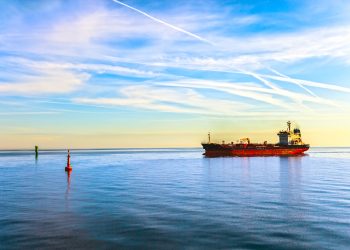In this video, James Mitchell, Manager at Rocky Mountain Institute and Dr. Nishatabbas Rehmatulla from UCL Energy Institute discuss why shipping must proceed to decarbonization, in order to match the level of ambition outlined in the Paris Agreement.
According to the Paris Agreement, the global temperature rise during this century must be kept well below 2 degrees Celsius. In order for the shipping industry to assist in this attempt, James Mitchell says that there are three measures that the industry can follow:
- Establish energy efficiency measures on ships;
- Improve the operational efficiency by deploying a monitoring software;
- Build the infrastructure necessary for low carbon fuels.
[smlsubform prepend=”GET THE SAFETY4SEA IN YOUR INBOX!” showname=false emailtxt=”” emailholder=”Enter your email address” showsubmit=true submittxt=”Submit” jsthanks=false thankyou=”Thank you for subscribing to our mailing list”]
However, these measures by themselves are not enough. Shipping industry must commit to improving its environmental footprint and it must be consistent in doing this. In this attempt, finance can play an important role, as long term investments will help the industry take a step towards decarbonisation.
But, what cargo owners can do to help? James Mitchell calls cargo owners to perform the following:
- Understand their carbon footprint;
- Disclose it publicly;
- Disclose their management plan publicly.
As for LNG, this fuel is indeed considered as a decarbonisation fuel. However, when used in maritime transport, its lifecycle emissions provide little to no benefit. This ‘locks us’ to high carbon infrastructure, which is incompatible with decarbonisation, Mr. Mitchell concludes.






























































